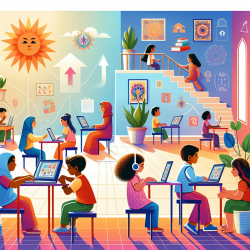Navigating the landscape of special education funding can be complex, yet it is crucial for ensuring that students with disabilities receive the quality education they deserve. In California, both federal and state provisions offer a variety of grants and funding opportunities to support these students. This blog post aims to demystify the funding process and highlight key grants that are instrumental in providing special education services.
The Individuals with Disabilities Education Act (IDEA) is a federal law that ensures students with disabilities are provided with Free Appropriate Public Education (FAPE) that is tailored to their individual needs. California receives funding under three provisions of IDEA, which are then allocated through various grants managed by the California Department of Education (CDE).
One of the primary sources of funding is the IDEA, Part B, Section 611 grant, which supports Local Educational Agencies (LEAs) in educating students aged five through twenty-one. The allocation of these funds is based on a three-part formula that considers the base amount each special education local plan area (SELPA) receives, the relative number of children enrolled in public and private schools within each SELPA, and the relative number of children living in poverty.
Additionally, the IDEA/American Rescue Plan (ARP) 611, Local Assistance Entitlements, Part B, supplemental funding is designed to address the educational needs of students with disabilities in light of the current statutory and regulatory requirements. This funding is crucial for supporting the expense of educating identified students with disabilities, especially during challenging times.
Beyond these, California offers several other grants aimed at specific areas of need within the special education sector:
- Individualized Education Program Support Centers Grant aims to provide technical assistance and support for comprehensive IEP development.
- California Special Education Technical Assistance Network Grant helps LEAs assess and address learning and service needs deficits experienced by students with disabilities.
- Special Education Alternate Dispute Resolution Grant encourages positive interaction and collaboration among parents and educators.
- Supporting Inclusive Practices Grants are designed to assist LEAs in improving educational results and functional outcomes for all children with disabilities.
Moreover, the state-funded grants, such as the WorkAbility I Program and the Educator Workforce Investment Grant, offer vocational training, job placement, and professional development opportunities to further support special education students and educators.
For parents, educators, and administrators, understanding these funding sources and how they can be utilized is key to enhancing the educational experience for students with disabilities. The CDE provides extensive resources and guidance on how these funds can be accessed and applied effectively within schools and communities.
To delve deeper into the specifics of each grant program, including eligibility criteria, application processes, and contact information for program consultants, visit the California Department of Education's official website or reach out directly to the Special Education Division.
For more information, please follow this link.










